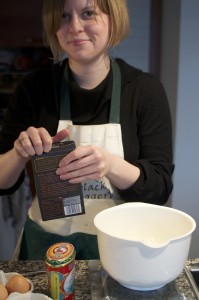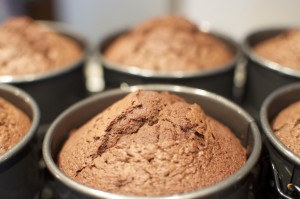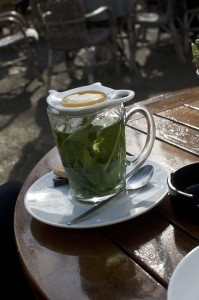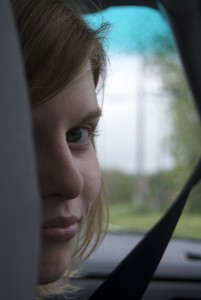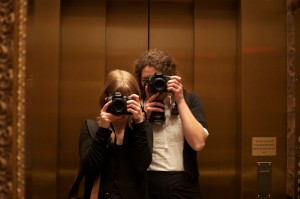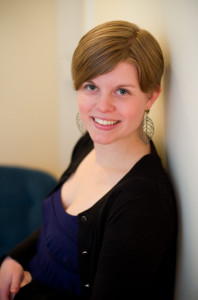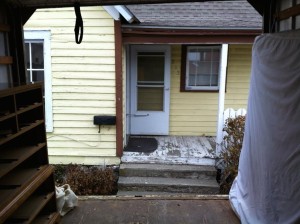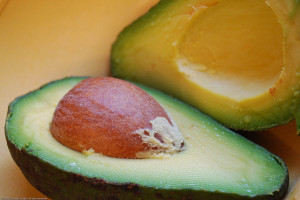I was 17 when we moved into the house my parents now live in. They had been married 27 years and in all that time they had never owned a house. I grew up in rented places with delightful details like pink bathtubs and red carpet in my bedroom. I took pleasure in the fruit trees we were allowed to harvest in one house, and in the hot tub at another. But this house was different. Here we could paint the walls without asking (or even knock them down if we so chose). Here we could drive nails deep into studs without thinking about spackling them eventually.
My parents bought the house in the dead of winter, while I was at Tae Kwon Do class. I saw it after we had signed the papers, a fact I’ve never let them forget. But I too fell under the cozy spell of the house, sitting in the basement near the wood-burning stove. I began to see the potential in the bedroom which would become mine, the one with the bright yellow walls and the glossy hardwood floors. Even our dog seemed to like it.
Our new backyard was three times the size of the one we’d had at our rental. In the back corner, nestled in the 90 degree angle made by two neighbors’ fences, was a house high up in a large pine tree. It was made of wood and covered with pine needles, inside and out. Pieces of wood had been nailed to the tree, creating a makeshift ladder. My brother was 15, and he and his friends would play up in it for hours, developing and carrying out secret missions and daring escapes.
It wasn’t long before I started talking about having an office again. I’ve been writing almost since I could talk (my mother wrote down my dictated journal entries beginning when I was 4). I thought that if I had my own space, a room, a desk, plenty of office supplies, it would help me along on the path to creativity. I began to research garden sheds, dreaming aloud about how I would decorate one.
Some time had passed and my brother was no longer so attached to the tree house. It stood in the corner of the yard, high in the tree, silent and waiting. After talking about it for months, my parents suggested that I not purchase a shed, but use the structure I already had available. I went to the hardware store.
Friends came to help me paint. I covered the walls with a bright red color (chosen after some color 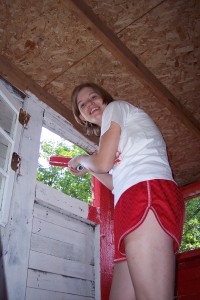 psychology research conducted with library books). When I rolled it on, it looked like wet blood. The floor was more challenging. I’d wanted black and white tiles, but we’d chosen to paint them instead. My parents helped me tape off the squares and we painstakingly painted them one by one.
psychology research conducted with library books). When I rolled it on, it looked like wet blood. The floor was more challenging. I’d wanted black and white tiles, but we’d chosen to paint them instead. My parents helped me tape off the squares and we painstakingly painted them one by one.
I went to a salvage store and purchased old windows and hinges. My dad attached them to the holes in the treehouse and rigged them to swing open if I needed a little air. Next, I went to Target and bought sticky notes, lighting, a chair. (I inwardly thanked the former owners for hooking up electricity to the little house).
I bought my desk from a couple in the country at an estate sale. It was a light green and they were glad to see it go to a good home. I painted it black and my family lifted it, somehow, into the treehouse for me one day as a surprise. I laid down a rug for my feet and declared the space finished.
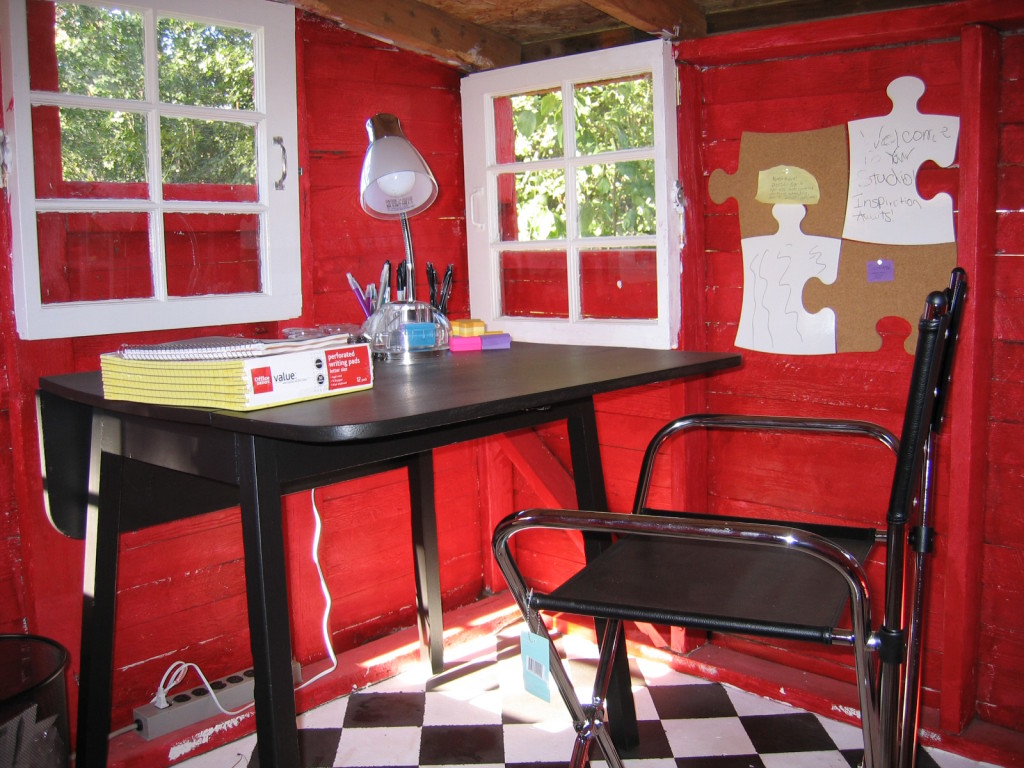 I loved everything about my “office” except its reality. It was too cold to sit outside in Spokane much of the year. My fingers would get stiff and I’d wrap a blanket around me, but I had difficulty relaxing into times of creating. When it was warmer, the elevated office was unbearably hot. I would sweat through half an hour, trying to put two thoughts together, while worrying about the buzzing sounds coming from nearby wasps and yellow jackets. I am not an outdoorsy person.
I loved everything about my “office” except its reality. It was too cold to sit outside in Spokane much of the year. My fingers would get stiff and I’d wrap a blanket around me, but I had difficulty relaxing into times of creating. When it was warmer, the elevated office was unbearably hot. I would sweat through half an hour, trying to put two thoughts together, while worrying about the buzzing sounds coming from nearby wasps and yellow jackets. I am not an outdoorsy person.
Eventually, I abandoned my office, removing the furniture and equipment. I went away to college. There, I wrote not only for love, but for a grade. I curled up on the futon in the dorm room I shared with two other women, or caught a ride to Starbucks where I’d plug in my earphones. Sometimes I’d snag a room at the library or sit up in bed, typing away. I almost never wrote at my desk. I couldn’t get comfortable.
In my efforts to create the perfect place to write, over the years, I had failed to remember that I write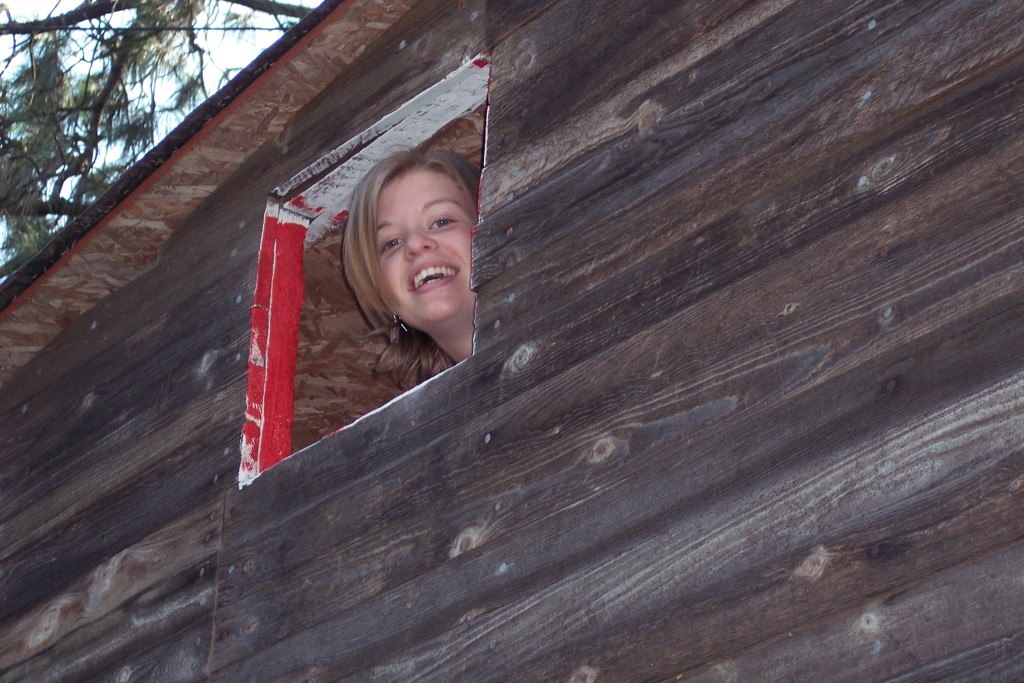 best curled up on a couch, tucked into blankets, or in my queen-sized bed, a mug of tea next to me. I do my best to remove distractions and make myself comfortable, but I know the truth: when I’m held in thrall, I can write anywhere, and I do.
best curled up on a couch, tucked into blankets, or in my queen-sized bed, a mug of tea next to me. I do my best to remove distractions and make myself comfortable, but I know the truth: when I’m held in thrall, I can write anywhere, and I do.



